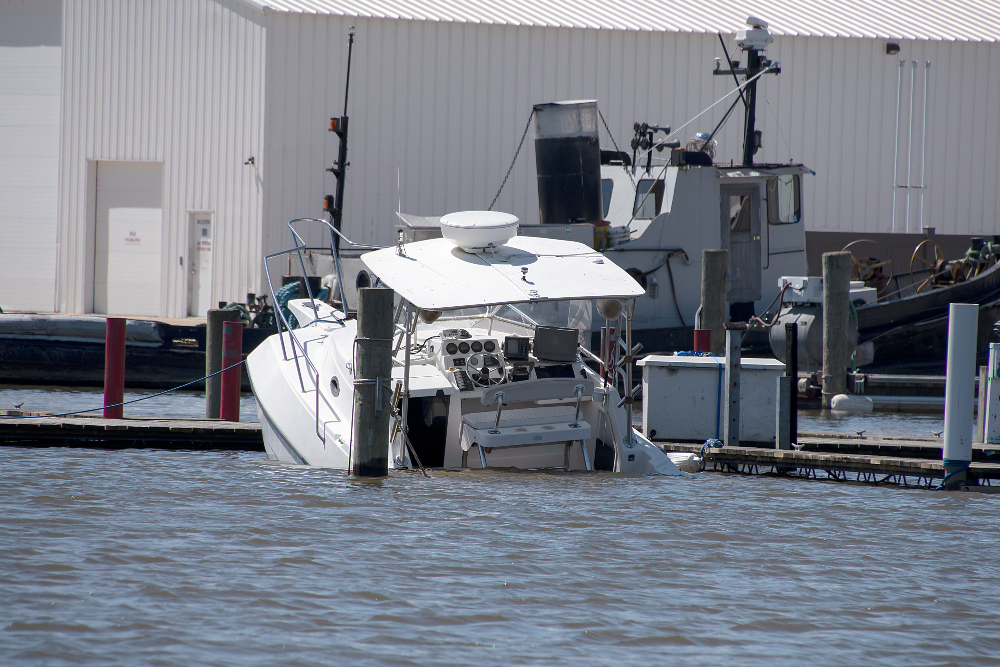
Boating is an enjoyable, liberating experience. Nevertheless, boats come with quite a few risks, regardless of whether people are participating in sports, participating in recreational activities, or enjoying leisure time. Accidents can be dangerous in any situation, but a boating accident can pose even greater dangers. Every year, thousands of water-related accidents occur, often with serious injuries and fatalities. Although you cannot anticipate or plan for a boating accident, they still happen frequently.
Nonetheless, you can be prepared for what is likely to happen after an accident, should one occur. No matter the circumstances of your accident, you must protect yourself by being aware of the proper steps to take. The following information highlights what your next steps should be after a boating accident in Minnesota.
Table of Contents
In any accident, your safety and the safety of others come first. It is always helpful to be wearing your personal flotation device before any accident occurs. After an accident, if your watercraft remains afloat, keep an eye out for injuries and missing passengers. Watch for possible overboard passengers, make sure they have some flotation device if possible, and care for any minor injuries if necessary. Look out for other vessels on the water and wave them down for help. To keep from being run over by other vessels, wave or splash water in the air as they approach.
If the watercraft is sinking or damaged, pull out all flotation devices readily available, and immediately grab on or cling to whatever solid debris remains. When you have been able to secure yourself, assist other passengers as much as possible while continuing to scan the waters for help. If possible, do your best to move everyone to safety, as passing vessels may not realize what’s going on. While it may be tempting to search for someone who is missing or help someone unresponsive, it’s essential to keep a clear head, wait for help, and concentrate on the things you have control over first.
If you can access a marine radio or have a working cell phone, contact the Coast Guard or Minnesota DNR or police immediately and when possible. right away. Notify them of the accident that has occurred, describe your location, explain the number of injured or missing people, and specify what level of assistance you need from the medical providers.
Once you have reached dry land, you will have the option of being transported to a hospital to receive medical care unless your injuries are severe enough for immediate treatment. After an accident, you should always go to the doctor or emergency room even if you don’t show any signs of injury. Furthermore, you will be able to prove that you have received medical attention and have documentation of the nature and extent of your injuries when you go to a medical provider. These are relevant details that can help strengthen your personal injury claim.
After you make sure all parties involved in the boating accident are safe, you must obtain contact information from the other parties as well as any eyewitnesses.
Following is a list of information that should be gathered at the accident scene:
Also, photograph the damage to the boat and the scene of the accident if possible. When you need to prove that another boat operator was at fault for the accident, collecting this information at the scene can be helpful.
Calling the Coast Guard after an accident on a watercraft is critical, especially if medical attention is required. Besides this, federal law requires the reporting of a watercraft accident. The US Coast Guard requires that you notify state authorities if the boating accident causes one of the following:
Minnesota’s Department of Natural Resources (MNDNR) is the agency that receives reports. They can be reached immediately at 651-296-6157 or 888-MINNDNR (646-6367).
The other reason you should report your boating accident is to have it officially documented. You can use this evidence to support your compensation claim. Keep in mind, though, that you should present a credible and factual report while avoiding extraneous details, opinions, or speculations of what occurred. Don’t take blame or apologize either, as these statements can be used against you as you move through the claims process.
If you were the owner or operator of the vessel involved in a boating accident, you should notify your insurance company immediately. No matter who was at fault, you should contact your insurer as you may need to turn to them for help in obtaining compensation.
It may be possible to file a lawsuit for compensation if the other boater caused the accident through negligence, carelessness, or violating the rules. A personal injury settlement could help cover your medical bills, lost income, lost earning capacity, pain and suffering, mental distress, or wrongful death.
If you’ve been injured on a boat, you should consider consulting an experienced lawyer before deciding how to proceed with your case. A boat accident lawyer can help you understand your legal rights and get the highest possible compensation for your injuries, damaged property, lost wages, and pain and suffering. A personal injury attorney from Knutson + Casey can protect you from future harm by giving you the best chance of a successful outcome after a boating accident in Minnesota.
Our consultations are always free. We’ll get in touch with you within 24 hours; no office visit necessary. Contact us today at (507) 344-8888 or complete our contact form for a Free Case Evaluation.